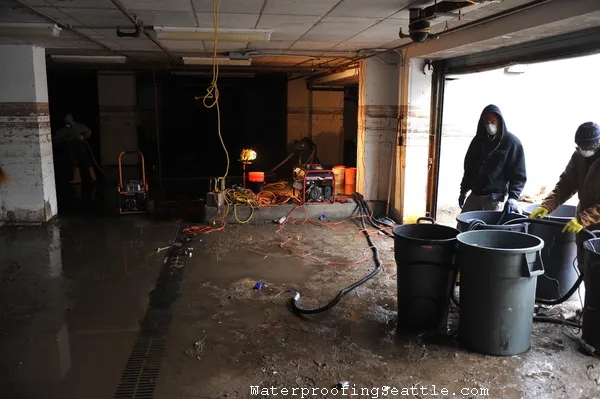
Water damage can strike at any time, wreaking havoc on your beautiful King County home. But have you ever wondered what really causes water damage? In this article, we will delve deep into the whodunit of water damage, uncovering the culprits and providing you with essential tips to prevent future disasters. So buckle up and get ready to become a water damage detective!
1. Inspect Your Pipes Regularly:
First things first, it’s time to put your detective hat on and investigate those pipes! Often hidden behind walls or ceilings, leaking pipes can cause major water damage if left unchecked. Make it a habit to inspect your pipes regularly, looking out for any signs of moisture or discoloration. Don’t wait until you’re knee-deep in water ” take action now!
2. Keep an Eye on Your Appliances:
Is your washing machine acting suspiciously? Do you hear strange noises coming from your dishwasher? Faulty appliances can quickly turn into water damage disasters. Don’t ignore these warning signs! Get them repaired or replaced immediately to avoid a watery catastrophe that could cost you thousands.
3. Maintain Your Roof Like a Pro:
The roof is often overlooked when it comes to preventing water damage, but it should be high on your priority list. Inspect your roof regularly for missing shingles, cracked flashing, or blocked gutters and downspouts. By maintaining your roof like a pro, you can ensure that rainwater stays where it belongs ” outside!
4. Battle Moisture in Your Bathroom:
Your bathroom may seem innocent enough, but it’s actually a prime suspect when it comes to water damage. From leaky faucets to faulty caulking around the bathtub, the bathroom is a breeding ground for moisture-related issues. Keep an eye out for any signs of water damage, such as peeling paint or mold growth, and address them immediately to prevent further damage.
5. Don’t Let Your Basement Become a Crime Scene:
Basements are notorious for housing water damage crimes. From burst pipes to foundation cracks, there are numerous ways water can infiltrate your basement. Protect this vulnerable area by sealing any cracks, installing a sump pump, and keeping your basement well-ventilated. With these proactive measures, you can ensure that your basement remains dry and free from water damage.
Waterproofing: The Ultimate Defense
When it comes to protecting your home from water damage, waterproofing is the key. By taking these additional measures, you can provide your home with the ultimate defense against unforeseen disasters.
1. Invest in Waterproof Paints and Sealants:
Cover your walls with a coat of waterproof paint and seal any cracks or gaps with high-quality sealants. This extra layer of protection will help prevent water from seeping into your home and causing irreparable damage.
2. Install a Drainage System:
A well-designed drainage system can redirect water away from your home’s foundation, preventing basement floods and structural damage. Consider installing gutters, downspouts, and French drains to ensure that rainwater has a clear path away from your property.
3. Opt for Water-Resistant Flooring:
When it comes to flooring choices, opt for materials that can withstand moisture. Consider options such as porcelain tile, vinyl plank, or engineered wood that can resist water damage and are easy to clean in case of spills.
The Importance of Early Detection
Early detection is crucial when it comes to preventing water damage. By catching the signs early on, you can take immediate action and minimize the potential for extensive damage.
1. Familiarize Yourself with the Warning Signs:
Water stains, musty odors, peeling wallpaper ” these are all warning signs of a water damage crime scene. Stay vigilant and familiarize yourself with these signs so that you can detect any issues as soon as they arise.
2. Install Water Leak Detectors:
Go high-tech with water leak detectors that can alert you to any unusual water activity in your home. These devices can be lifesavers, giving you peace of mind and saving you from potential disasters.
...continue with the other sections...
